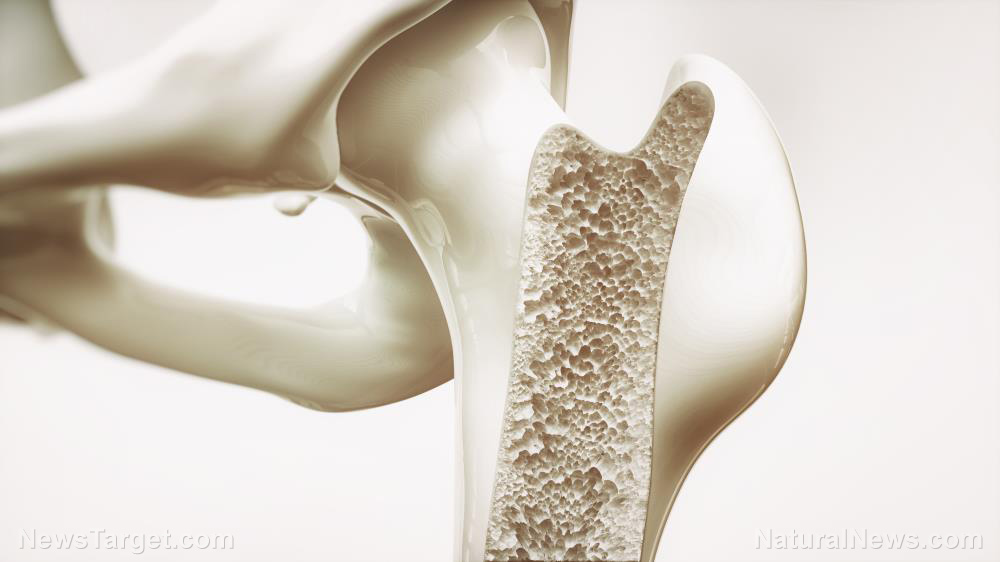FDA rules common ingredient in decongestants DOES NOT WORK
09/19/2023 / By Zoey Sky

A Food and Drug Administration (FDA) panel recently ruled that a medicine used by millions of Americans for stuffy nose is ineffective.
Many decongestants contain phenylephrine, the most common active compound in many over-the-counter (OTC) medications, such as Benadryl Allergy Plus Congestion.
After a two-day review, the FDA panel announced that the oral decongestant “is not effective” at standard or even higher doses compared to a placebo.
The panel’s ruling is not binding, but it strongly suggests that the agency could soon pull its approval of the decongestant.
While phenylephrine is protected under the FDA’s Generally Recognized as Safe and Effective (GRASE) designation, a reversal of FDA approval could mean manufacturers, such as Bayer and Johnson and Johnson, will soon be required to reformulate. (Related: PHARMACEUTICAL FRAUD: Big Pharma’s corporate lawlessness cost Americans over $40B in 2019 alone.)
Almost all nasal decongestants contain phenylephrine
Phenylephrine is a very common ingredient and many products that contain it can be found on pharmacy shelves. Data presented by FDA officials suggest that these medications generated almost $1.8 billion in sales in 2022.
However, the unanimous vote by the 16-member Nonprescription Drug Advisory panel could cause a major blow to the pharmaceutical industry despite the ruling only applying to oral formulations of phenylephrine.
Phenylephrine was first approved by the FDA in the 1970s to help shrink dilated blood vessels in the nose, which allegedly relieves nasal and sinus congestion.
But since the ingredient’s approval, subsequent studies have questioned whether oral formulations with phenylephrine have any measurable benefit, especially because of how it is metabolized in the body.
Phenylephrine is metabolized in the gut, allowing only a fraction to enter the bloodstream and reach the nose. According to briefing documents compiled by the FDA, less than one percent concentration of the drug can reach the nose after being broken down in the gut.
The documents also detailed flaws in the trials for the ingredient in the 1960s and 1970s, which included small sample sizes and techniques no longer used by the FDA to approve medications.
Additionally, phenylephrine does seem to work better when applied directly to the user’s nose.
In 2007, pharmacy professors at the University of Florida put forth a petition calling for the FDA to review whether a 10-milligram phenylephrine pill was effective as a decongestant.
In their meta-analysis of available data, the professors said the results of the studies reported after the 2007 Advisory Committee Meeting “clearly demonstrate that [phenylephrine] is no more effective than [a] placebo in decreasing nasal congestion and increasing the dose fourfold did not provide additional benefit.”
Several studies pointing to the ineffectiveness of phenylephrine have come out since the 2007 petition.
In 2015, a study sponsored in part by the New Jersey-based pharmaceutical company Merck & Co. revealed that the 10-milligram dose, along with 20-, 30-, or 40-milligram doses, were “not significantly better than placebo at relieving nasal congestion” in a sample of 539 adults.
While this is good news for consumers, the panel’s unanimous ruling does not include pseudoephedrine, another popular decongestant.
In 2006, a law was passed to limit access to pseudoephedrine by moving it behind pharmacy counters. Pseudoephedrine is the active ingredient in different versions of Sudafed and is also used to illegally process methamphetamine.
Natural remedies for a stuffy nose
Avoid OTC drugs with harmful ingredients and try these natural remedies for a stuffy nose:
Try natural decongestants like ginger
Some studies say vitamin C can help shorten the duration of a cold and decrease the severity of symptoms, but it doesn’t directly affect congestion.
But if have a stuffy nose because of a cold, taking some extra vitamin C may help you get over your symptoms and recover much faster.
For stuffiness due to allergies, try ginger.
One study published in the journal BMC Complementary Medicine and Therapies revealed that a daily 500-milligram (mg) dose of ginger extract was just as effective as loratadine, an antihistamine, for congestion due to nasal allergies or allergic rhinitis.
The researchers suggested that ginger may have both anti-allergic and anti-inflammatory mechanisms.
Try nasal irrigation
Nasal irrigation may seem rather unusual, but rinsing out your nasal passages using a neti pot via a technique called nasal irrigation can help loosen thick mucus and remove irritants, allergens, and germs.
The FDA says that a neti pot is safe to use as long as you use it with sterile or distilled water. Never use tap water unless it has been properly boiled and cooled.
Neti pots come with specific directions, but most can be used similarly:
- Fill the pot with a saline solution. Use warm, sterile water and salt.
- Lean over a sink and tilt your head sideways and your forehead and chin level. This will help prevent the liquid from flowing into your mouth.
- As you breathe through your mouth, insert the spout of the neti pot into your upper nostril so that the liquid drains through the lower nostril.
- Repeat on the other nostril.
You can also try using a nasal spray bottle, which will deliver a fine mist of saline into the nose that may help soothe dry nasal passages. However, the FDA says that a nasal spray bottle isn’t as effective as an irrigation device like a neti pot.
Take a hot shower
If you have a cold, a hot shower can offer some relief. This is because inhaling steam reduces sinus pain and pressure by helping mucus drain.
This can also help your breathing return to normal, at least for a little while.
If you are too sick to take a shower, get the steamy shower effect by breathing in steam from hot water in a sink. Run hot water in the bathroom sink and place a towel over your head.
Put your head over the sink, but make sure you don’t get too close and risk burning your skin. You can do this safely several times a day.
Use a humidifier
Using a humidifier or cool-mist vaporizer in your home can help reduce nasal congestion because breathing in humid air helps soothe irritated nasal tissues.
Additionally, the humid air lessens sinus inflammation and thins mucus, in turn helping it drain.
Look for warm-mist and cool-mist machines because they are both effective for raising the humidity level and easing congestion.
If you have children at home, use cool-mist vaporizers. The hot water or steam from a warm-mist humidifier can burn a child if they get too close or if the machine is accidentally knocked over and the water spills out.
Whatever kind of unit you choose, always change the water daily. Clean the unit according to the manufacturer’s instructions to prevent the growth of bacteria and mold.
Visit Medicine.news to learn more about dangerous over-the-counter medications.
Watch the video below to learn how organic turmeric, black pepper and ginger can support healthy immune and digestive function.
This video is from the Health Ranger Store channel on Brighteon.com.
More related stories:
FDA to review effectiveness of key ingredient in decongestant meds.
Natural healing: 12 Cold and flu home remedies.
Sources include:
Submit a correction >>
Tagged Under:
alternative medicine, Big Pharma, chemicals, common cold, decongestants, FDA, flu survival, health science, ingredients, natural medicine, Naturopathy, OTC meds, pharmaceutical fraud, phenylephrine, Prescription drugs, remedies, stuffy nose
This article may contain statements that reflect the opinion of the author
RECENT NEWS & ARTICLES
COPYRIGHT © 2017 NATURAL HEALTH NEWS




















